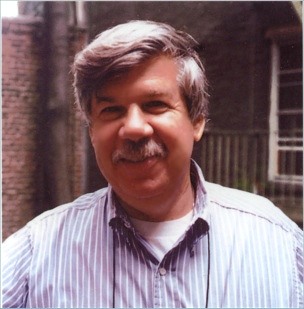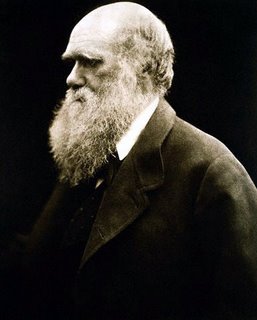
Stephen Jay Gould
I will grant one point to my scientific colleagues and freely allow that if Charles Darwin had never been born, a well-prepared and waiting scientific world, abetted by a cultural context more than ready for such a reconstruction of nature, would still have promulgated and won general acceptance for evolution in the mid 19th century. At some point, the mechanism of natural selection would also have been formulated and eventually validated, perhaps by Wallace himself who might then have expanded his few pages of speculation, written during a malarial fit on Ternate, into the same kind of factual compendium that Darwin composed, and that guaranteed the triumph of this view of life.
So why fret and care that the actual version of the destined deed was done by an upper class English gentleman who had circumnavigated the globe as a vigorous youth, lost his dearest daughter and his waning faith at the same time, wrote the greatest treatise ever composed on the taxonomy of barnacles, and eventually grew a white beard, lived as a country squire just south of London, and never again traveled far enough even to cross the English Channel? We care for the same reason that we love okapis, delight in the fossil evidence of trilobites, and mourn the passage of the dodo. We care because the broad events that had to happen, happened to happen in a certain particular way. And something almost unspeakably holy-I don’t know how else to say this-underlies our discovery and confirmation of the actual details that made our world and also, in realms of contingency, assured the minutiae of its construction in the manner we know, and not in anyone of a trillion other ways, nearly all of which would not have included the evolution of a scribe to record the beauty, the cruelty, the fascination, and the mystery.
Yes, the Renaissance would have unfolded-indeed, Europe already bathed in its midst-if Michelangelo had never been born. But how much poorer would our world have been without the magnificent statue of Moses, furious and disconsolate as he holds the tablets of the law while his people dance about the golden calf, still presiding in the Church of San Pietro in Vincoli; and without the gigantic fresco of the Last Judgment, revealing all our blessed humanity in all our earthly sins, and still covering, in brilliant restoration, a full wall of the Sistine Chapel?
No difference truly separates science and art in this crucial respect. We only perceive a division because our disparate traditions lead us to focus upon different scales of the identity. The art historian looks right at Moses and knows the importance of its individuality. The scientist tends to gaze upon a world ready for evolution, and then discounts the centrality of a single, admittedly fascinating, individual named Charles Darwin. But if Darwin had never been born, we would have suffered the equivalent of a Renaissance without Moses or the Last Judgment-a biological revolution without the Origin of Species; without the invocation of Julia Pastrana, the bearded circus lady with two sets of teeth, to illustrate correlation of growth; without the Galapagos fauna to embody the principle of imperfection to prove the pathways of history; without pigeons to illustrate artificial selection; without barnacles to puncture half our pride with their dwarfed males upon the hermaphrodites.
Most of all, we would have experienced the same biological revolution without the stunning clarity, illustrated by wonderfully apposite metaphors, of a complex central logic so brilliantly formulated, and so bristling with implications extending nearly forever outward, at least well past our current reckoning. In this alternate world, we would probably be honoring a different and far less compelling founder by occasional visits to a statue in a musty pantheon, and not by constant dialogue with a man whose ideas live, breathe, challenge, taunt, and inspire us every day of our lives, more than a century after his bones came to rest on a cathedral floor at the foot of whatever persists in the material being of Isaac Newton.

Charles Darwin with beard
We would be enjoying an evolutionary view of life, but not the specific grandeur of “this view of life.” What can be more ennobling than a factual reality-the uniquely actualized result among innumerable potentials that did not obtain the most precious privilege of emergence into concrete existence? And what a stunning piece of good fortune, that this actuality came to us with all the grace, the moral weight, and the intellectual power of Darwin’s particular struggles and insights, clothing the structure of his thought in that apotheosis of human achievement-wisdom, which the Book of Proverbs, citing the same icon that Darwin would borrow more than two millennia later, called Etz Chayim, the tree of life. “Length of days is in her right hand,” for “she is a tree of life to them that lay hold upon her; and happy is everyone that retaineth her.”
From Stephen Jay Gould, The Structure of Evolutionary Theory, (Harvard University Press, 2002), p. 1294-1295














No comments:
Post a Comment